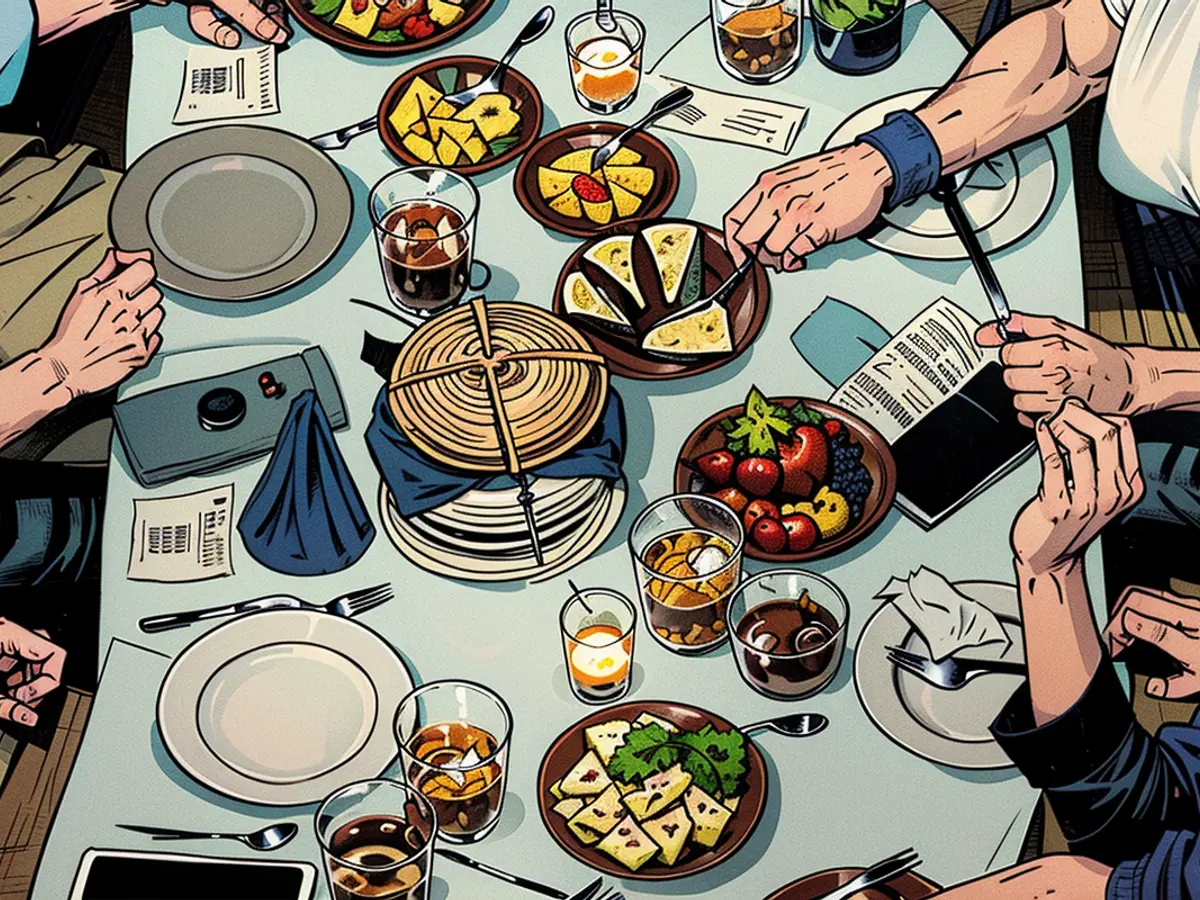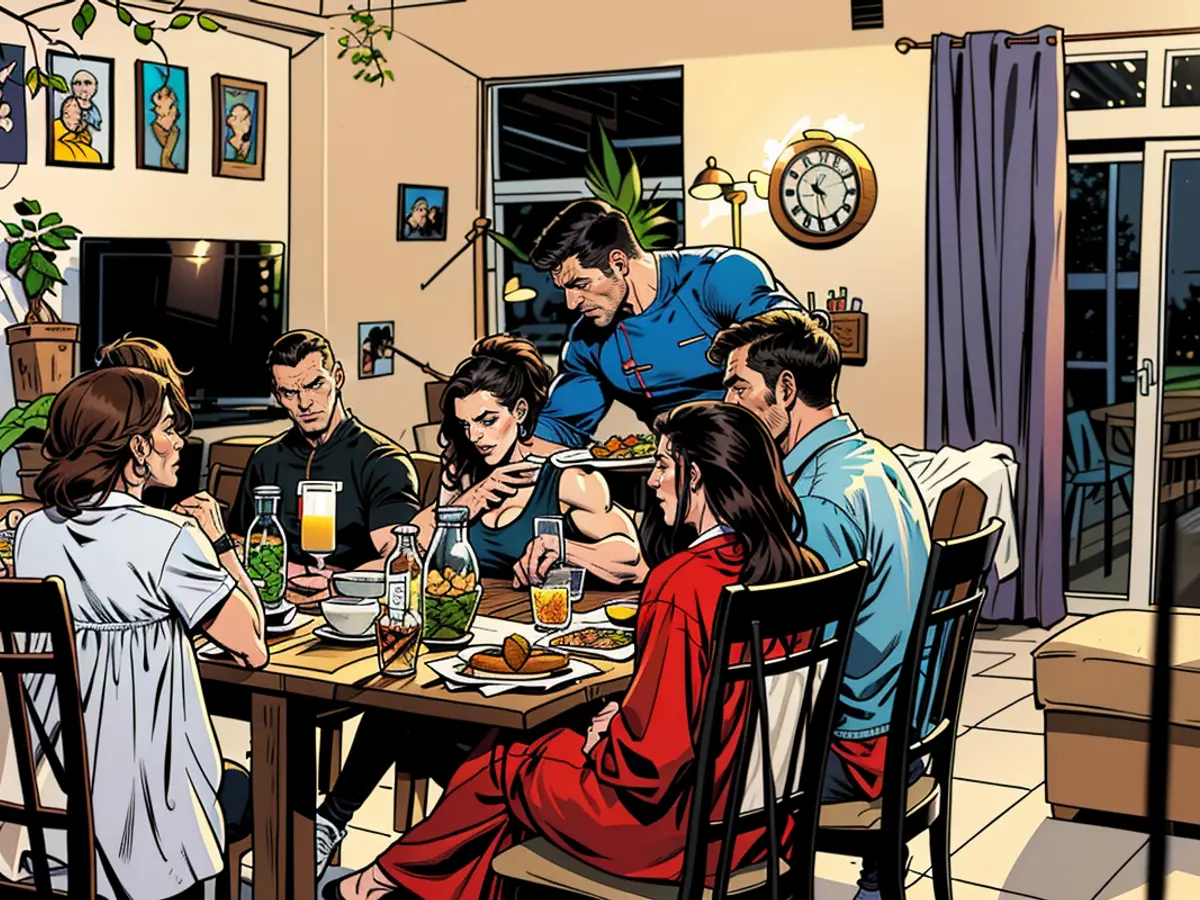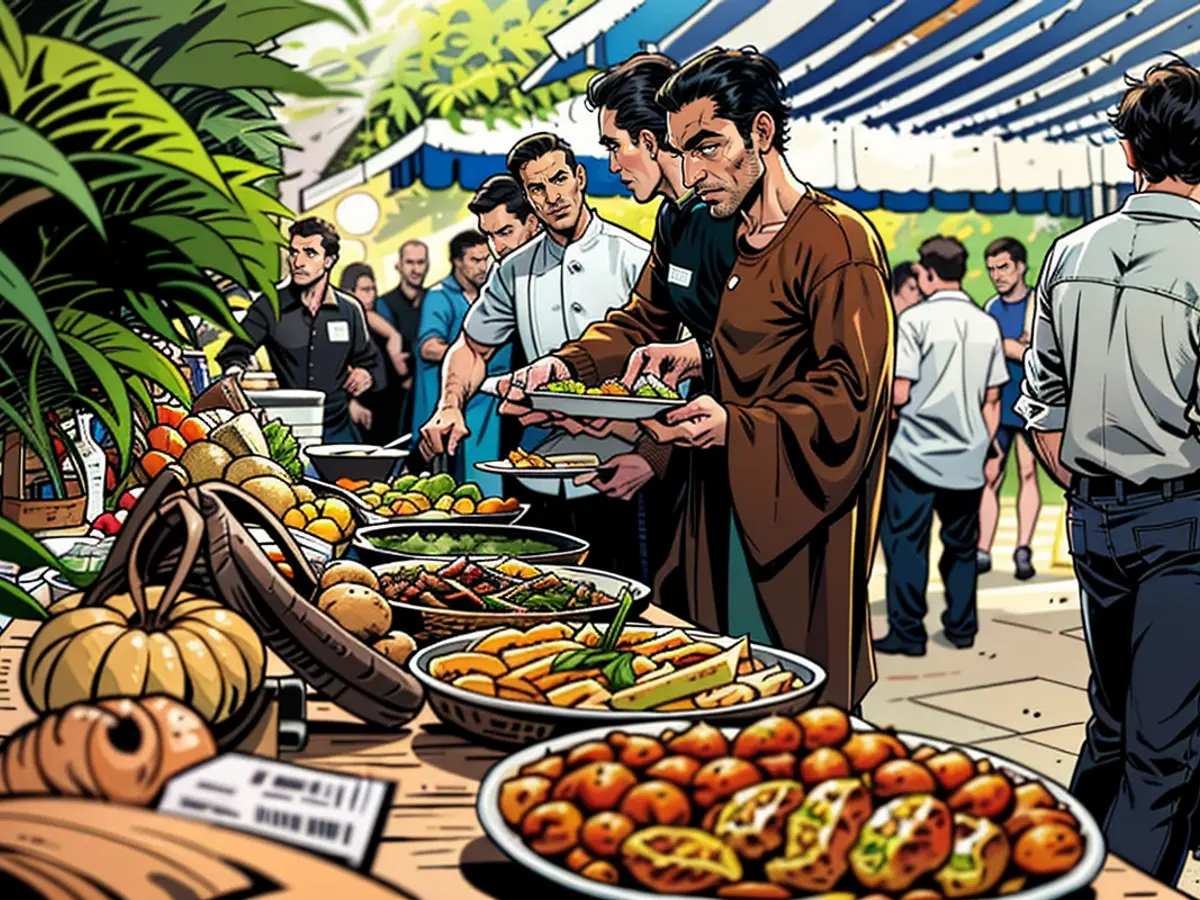This city has 18,000 restaurants — but diners are spending $100 to eat at someone’s home
Yet people are shelling out to do just that. Not their own home, though: diners are handing over upwards of $80 to have complete strangers cook for them at “supper clubs.”
Supper clubs are set-menu dinners hosted by amateur or professional chefs. Diners often won’t know the menu or location of the dinner until after they book. People are encouraged to come alone, or with just one friend, providing a chance to network, and attendees can bring their own drinks.
The phenomenon isn’t new, or exclusive to Dubai, but it’s reached new heights in the city in the past year with dozens of experiences appearing in the underground dining scene.
“I wanted to bring people under one roof, at one table, get them to speak with no boundaries, and just share a nice meal and conversation,” says Palestinian chef Ahmad Halawa, who started his supper club in 2019, hosting dinners on weekends and juggling a full-time job in marketing.
At first, it was just friends and family coming along. But once word started to spread about Halawa’s delicious dishes, “I had strangers in my house, and people were booking their seats to come and join the experience,” he says.
People mostly find Halawa through word of mouth or on Instagram, and his events usually book out within two days. He quit his job in 2021, and now he hosts up to 30 guests twice a week in his backyard, decked out with an elegant banquet table, flower arrangements and fairy lights.
These strangers pay over $100 per person to partake in his creative Levantine menus, including his famous knafeh, a traditional Arabic dessert made with fine pasty and sweet soft cheese.
While great food is key to any dinner party, Halawa suspects that the social aspect of the supper clubs is buoying their appeal in Dubai, where around 90% of the population are foreigners.
“Most people are away from home, away from their families, so I wanted to create that sense of community that’s a bit distorted in Dubai,” he says, adding that his dinners are served family style at a communal table rather than plated per-person like at a restaurant.
“People miss that authenticity,” says Halawa. “(Supper clubs) give a more intimate, personal experience for the attendee.”

Creative cooking
The soaring popularity of supper clubs in Dubai is, at least in part, due to some high-profile success stories. Pop-up restaurant Hawkerboi went from sell-out supper club events to opening a brick-and-mortar restaurant in the city last year.
Meanwhile, self-taught chef Neha Mishra’s passion for ramen garnered a cult following that turned her supper club — sold out six nights a week for three years — into a restaurant, Kinoya, in 2021. It ranked number 11 on the 50 Best Restaurants list for the Middle East and North Africa, was recognized by Michelin Bib Gourmand, and just opened a second outlet, in London.
Success stories like Mishra’s have inspired others to test the waters. Dragan Susa, a concept development chef at Emirates Flight Catering, began hosting supper clubs in 2021. While at work he spends more time in an office than a kitchen, his supper club gives him freedom to be creative.
Susa’s eight-course menu, starting at $110 per person, showcases dishes from his childhood in Croatia, Serbia and Greece, and shares his personal story, mixing Balkan and Greek influences with seasonal ingredients available in Dubai.
Like Halawa, he believes that the search for community is one of the big drivers ofdemand for these experiences.
“Dubai is a fast-moving city, people come in and out and they stay here for a year or two,” says Susa, adding that the clubs allow you to meet people outside of your profession, workplace, and existing friend group.

Avid foodie Dave Luis attended his first supper club in July 2022, Kuv’s Secret Supper Club, and has attended many more since.
“I love dining out, but had become jaded with Dubai’s restaurant scene,” says the 50-year-old South African, now based in Dubai. “The idea of a supper club, in the chef’s home, felt so much more personal and memorable — an invitation to explore and experience dishes I’d not usually encounter at a restaurant.”
For Luis, the social aspect is as important as the menu. “It’s so rare to have an evening out where the magnificence of the food is matched by the intrigue and sheer joy of meeting people from so many cultures, many of whom have become friends,” he adds.
“Heart and soul of the culinary space”
Supper clubs operate in a grayarea: they’re not restaurants, so they don’t need food licenses, which makes them easy to set up, and which also means they aren’t regulated by traditional hygiene and safety bodies.
In a bid to standardize the sector — and get a slice of the proverbial supper club pie — entrepreneur Kevin Vaz co-founded Splidu, an app that connects diners to unique underground diningexperiences in the United Arab Emirates. The app facilitates the booking process, payment and legal paperwork, allowing chefs to focus on creativity rather than logistics.
“We have public liability insurances linked to our trade license, which also gives protection to the guest, provides protection to the chef, as well as any other stakeholder,” Vaz says.

While platforms like “Design My Night” operate in the UK, Australia and Ireland, andglobal app Eventbrite sometimes lists supper clubs among other restaurant deals and experiences, Vaz says that Splidu is among the first to focus exclusively on underground dining. He hopes to create a distinct category in the food and beverage industry for the sector, similar to how delivery services have evolved.
According to data from Splidu, more than 4,000 diners have booked experiences on the platform in the first half of 2024, with an average of 41 experiences offered each month.
“This is the heart and soul of the culinary space,” he says, adding that 88% of first-time users book another experience. “They get hooked on it: you can’t get that experience anywhere else.”
Susa, who uses Splidu to promote his events, says supper clubs have been a great way for him to test out his ideas and explore his culinary ambitions — and like most chefs, having his own restaurant would be a dream.
“You never know who’s going to be there, or who that person will know,” says Susa.
Dining at supper clubs offers more than just delicious food; it provides an opportunity for networking and creating community. Many people, like Dave Luis, attend these events to meet people from various cultures and form new friendships.
The success of supper clubs in Dubai has led to several chefs, such as Neha Mishra and Dragan Susa, turning their pop-up events into brick-and-mortar restaurants, showcasing their unique culinary skills and personal stories.
Read also:
- Fear of escalation in the Middle East: US Secretary of State Blinken travels to the region again
- Government circles: US Secretary of State Blinken to travel to Middle East again
- Bridging days 2024: How you can double your vacation this year
- Germany has wanderlust: how tour operators and airlines are looking ahead to the next travel year








